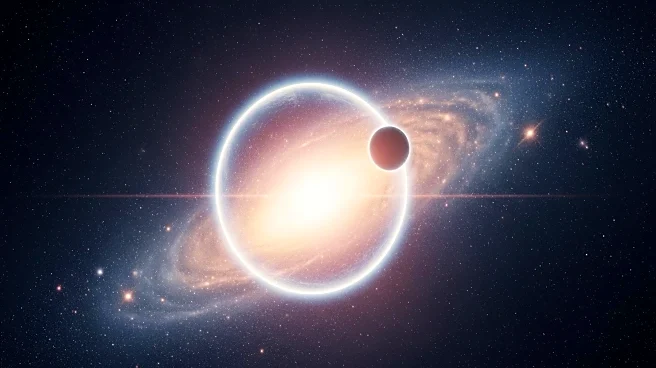What is the story about?
What's Happening?
An international team of astronomers has discovered a new planet, named WISPIT 2b, orbiting the young star WISPIT 2 in the constellation Aquila. The planet, estimated to be approximately 5 million years old, is likely a gas giant similar in size to Jupiter. It was detected using the European Southern Observatory's Very Large Telescope (ESO's VLT) in Chile. This discovery marks only the second confirmed planet detected at such an early stage of formation around a young Sun-like star and the first unambiguous detection within a multi-ringed dust disk. The detection in both near-infrared and visible light indicates ongoing gas accretion during atmospheric formation, making the system a valuable resource for studying planet-disk interaction and planetary system evolution.
Why It's Important?
The discovery of WISPIT 2b is significant as it provides a unique opportunity to study the early stages of planet formation and the interaction between planets and their surrounding disks. Understanding these processes can offer insights into the diversity and evolution of planetary systems, including those beyond our solar system. The findings could help astronomers better comprehend why many exoplanet systems differ from our own. The study, led by Leiden University and other international institutions, contributes to the broader field of astrophysics by enhancing knowledge about the formation and development of planetary systems.
What's Next?
The discovery of WISPIT 2b opens up new avenues for research into planet formation and disk interaction. Astronomers are likely to conduct further observations and studies to explore the dynamics of the WISPIT 2 system and similar systems. The data gathered from this discovery will be crucial for refining models of planetary formation and evolution. Researchers may also focus on identifying other young stars with similar characteristics to expand the understanding of early planetary development.















